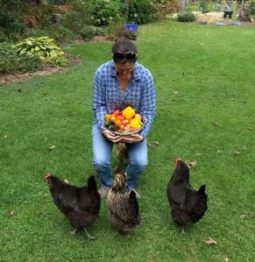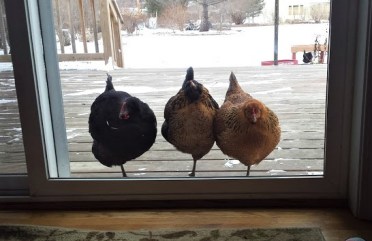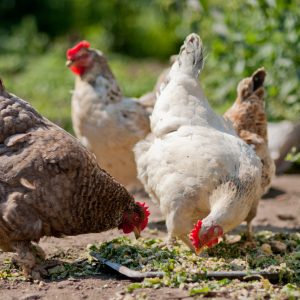
From Cluck to Compost: Unlock the Power of Chicken Manure in Your Homestead Garden
Like many homesteaders, our journey with chickens started with a simple craving: fresh, golden-yolked eggs. We envisioned sunny mornings collecting eggs in a wicker basket, perhaps with a rooster crowing merrily in the background (reality, of course, involved a slightly more chaotic scene!). But what began as a quest for the perfect breakfast quickly blossomed into a deeper understanding of the incredible, symbiotic relationship chickens could have with our garden and the entire homestead.
Tired of relying on store-bought fertilizers? Want to create a closed-loop system that minimizes waste and maximizes your garden's potential? This post will show you how to unlock the hidden power of your feathered friends, transforming them from mere egg-layers into vital partners in a thriving, sustainable homestead. This isn't just about eggs; it's about creating a closed-loop system where chickens contribute significantly to the overall health and productivity of the garden and homestead. We’ll show you how to turn "chicken math" into true homestead gains!

Chicken Manure: Black Gold for Your Garden
Chicken manure is a powerhouse of nutrients, boasting an impressive N-P-K (Nitrogen, Phosphorus, Potassium) ratio that makes it a fantastic fertilizer for a wide variety of plants. Nitrogen promotes leafy growth, phosphorus encourages strong root development and flowering, and potassium contributes to overall plant health and disease resistance. Homegrown vegetables and fruits will not only taste better, but they will be healthier too!
However, it's crucial to understand that fresh chicken manure is too hot to apply directly to your garden. The high concentration of ammonia can burn delicate plant roots and even kill them. Think of it like this: fresh manure is like a concentrated vitamin – too much at once can be harmful.
That's where composting comes in. Composting chicken manure not only reduces its nitrogen concentration but also kills harmful pathogens like E. coli and salmonella. The composting process transforms the raw manure into a stable, nutrient-rich soil amendment that's safe and beneficial for your plants. The best part? You're recycling waste into a valuable resource, reducing your reliance on synthetic fertilizers and improving your soil's overall health.
Key takeaway: Properly composted chicken manure is a valuable soil amendment that can significantly improve garden fertility and reduce reliance on synthetic fertilizers.

Composting with Chickens: The Lazy Homesteader's Secret Weapon
Composting can sometimes feel like a chore, involving regular turning and monitoring. But what if I told you that your chickens could do most of the work for you? There are two main methods for leveraging your flock's natural composting abilities: the deep litter method and the dedicated chicken compost pile.
The Deep Litter Method: This involves building up layers of organic material – straw, wood shavings, dried leaves – inside the chicken coop. As your chickens scratch and peck, they constantly turn and aerate the litter, breaking down the organic matter and mixing it with their droppings. This creates a constantly composting environment that controls moisture, reduces odors, and generates a rich compost base right inside the coop. You can add to the coop litter on a weekly basis, and clean it all out 1-2 times a year depending on how many chickens you have.
Dedicated Chicken Compost Pile: For a more intensive composting approach, create a separate compost pile specifically for chicken manure and coop bedding. Regularly add the contents of the coop to this pile, along with other compostable materials like kitchen scraps, garden waste, and leaves. The chickens can help turn the pile by scratching and foraging through it, accelerating the decomposition process. Be sure to provide a barrier, like chicken wire, to prevent them from completely dismantling the pile! Make sure your piles are layered appropriately, using a good balance of "brown" materials (dried leaves, straw) and "green" materials (manure, kitchen scraps). This ensures proper aeration and prevents unpleasant odors.
Addressing Challenges: Like any composting system, chicken-assisted composting can present challenges. Flies can be attracted to the pile, especially if it's too wet. To prevent this, ensure good ventilation and cover the pile with a tarp or layer of straw. Odors can also be an issue if the pile isn't properly aerated. Turning the pile regularly (or letting the chickens do it for you!) helps prevent anaerobic conditions that lead to foul smells. Rodent attraction can also be a concern. To minimize this, avoid adding meat or dairy products to the compost pile and ensure the pile is located away from your house.
Key takeaway: Chickens can significantly streamline the composting process, making it easier and more efficient to turn kitchen and yard waste into valuable soil amendments.

Pest Patrol: Natural Pest Control with Your Feathered Friends
Beyond their composting prowess, chickens are also incredibly effective pest controllers. They are natural foragers, constantly on the lookout for insects, slugs, snails, and other garden pests. Releasing your chickens into the garden (under supervision, of course!) can significantly reduce pest populations and minimize the need for chemical pesticides.
Strategies for Safe Integration: The key to successful chicken pest control is managing their access to the garden. Rotating grazing areas is a great option. Allow them to forage in one section of the garden for a limited time, then move them to another area. This prevents them from overgrazing or damaging your plants. Fencing off vulnerable plants is another essential strategy. Use chicken wire or netting to protect seedlings, vegetables, and fruits from being eaten or scratched up.
Supervision is Key: Never leave your chickens unattended in the garden. They can quickly decimate your plants if left to their own devices. With supervision, you can guide them to specific areas where they are needed most and prevent them from causing too much damage.
Chicken Tractors: A chicken tractor is a movable pen that allows you to contain your chickens in a specific area of the garden for pest control. This is a great option for targeting specific areas infested with pests, like squash bugs on your pumpkins or potato beetles on your potato plants.
Key takeaway: Chickens can serve as a natural and effective form of pest control in the garden, reducing the need for chemical pesticides and promoting a healthier ecosystem.
"Chicken Math": Making Homestead Economics Work
While the joy of collecting fresh eggs is undeniable, it's important to consider the economic value of chickens beyond their egg-laying capabilities. Too many people think chickens are simply pets that need looking after. By using the composted manure, you can drastically reduce your reliance on chemical fertilizers. This reduces your costs and increases your homegrown food production. Chickens also eat many garden pests, like squash bugs, that would otherwise need pest control intervention. Many of these interventions cost money. Also consider, if you raise heritage breeds, there is a high potential to sell chicks or even the compost itself. Many urban gardeners will buy composted chicken manure rather than relying on shop bought products.
Tracking your expenses (feed, bedding, coop maintenance) and income (egg sales, chick sales, compost sales) can help you determine the true economic value of your chickens. Don't forget to factor in the non-monetary benefits, such as the entertainment they provide and the connection to nature they foster. There is something special about watching a flock of chickens roam around your backyard.
Key takeaway: While chickens require some initial investment, their contributions to soil health, pest control, and waste management can significantly reduce expenses and increase the overall economic sustainability of the homestead.

Building a Chicken-Friendly Garden: Designing for Coexistence
Creating a garden design that accommodates both plants and chickens requires careful planning and consideration. The key is to create designated chicken areas (runs, chicken tractors) that are separate from your sensitive planting beds. This allows the chickens to forage and explore without damaging your plants.
Use chicken-proof fencing to protect vulnerable plants. This can be as simple as surrounding individual plants with wire cages or creating a larger fenced-in area to protect an entire garden bed. Consider planting chicken-friendly forage crops in the chicken run to supplement their diet. Clover, comfrey, and alfalfa are all excellent options that provide chickens with essential nutrients.
Provide shade and shelter for your chickens in the garden. Trees, shrubs, and chicken coops can provide relief from the sun and protection from the elements.
Key takeaway: Thoughtful garden design can help create a harmonious balance between plants and chickens, allowing them to coexist in a mutually beneficial relationship.
Your Sustainable Homestead Awaits
Integrating chickens into a sustainable homesteading system is a transformative experience. It's a journey, not a destination, and even small steps can make a big difference. By harnessing the power of chicken manure, utilizing their composting abilities, and leveraging their pest control skills, you can create a more fertile, productive, and sustainable garden.
As autumn approaches, now is the perfect time to prepare your chicken coop for winter. Add extra bedding to provide insulation and protect your flock from the cold. You can also start composting fall leaves with chicken manure to create a rich soil amendment for next year's garden.
Remember how we started with a simple desire for fresh eggs? Now, our chickens are integral to our homestead's success, contributing to the health of our garden, the fertility of our soil, and the overall sustainability of our lifestyle. It's a closed-loop system that benefits both us and our feathered friends.
Now it’s your turn! Share your own experiences with chickens and homesteading in the comments below. What are your favorite tips for integrating chickens into your garden? And don’t forget to subscribe to the Better Homes and Harvests newsletter for more tips and inspiration. To get started today, consider creating a small compost pile, building a chicken tractor, and researching chicken-friendly forage crops. Share your adventures on social media using #homesteading, #chickens, #sustainableliving, and #organicgardening. Let’s build a community of homesteaders, together!